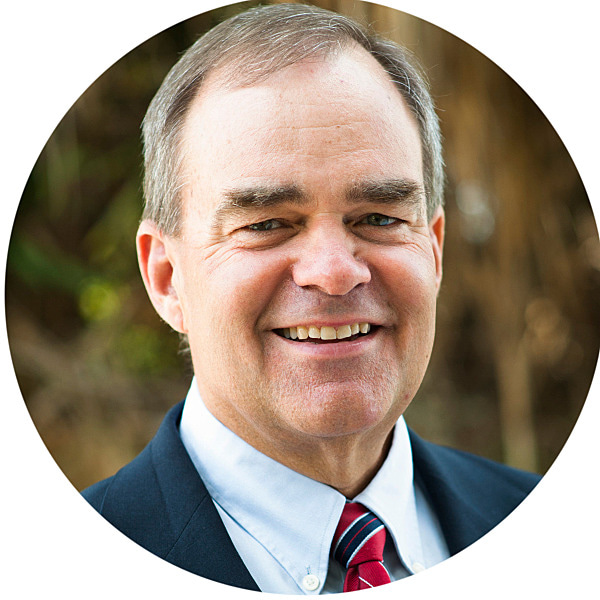In this session, we’re going to talk about counselling depressed people. And, dealing with depression is one of the most common issues for which people come for counseling. It’s also something which many of us as counselors have dealt with personally in our own lives, our own families. It’s also one of the most difficult aspects of counseling. I really enjoy peace-making cases where through the Gospel, people see their sin, they repent of their sin, they forgive. And sometimes you see rapid progress, even in one hour things are turned around. That’s very exciting. Depressed people are kind of hard to talk to, and when there is progress, it often is very gradual. And we need to be very patient with depressed people.
What is depression?
Well, how do we understand depression? What is depression? Depression isn’t one of those emotions that you can– you know when you’re depressed, but it’s hard to put a verbal definition to it. It’s more than just feeling a bit down. Everybody gets down now and then, everybody, most people have some emotional ups and downs more than others. Proverbs 18:14 says, “The spirit “of a man can endure his sickness, “but it’s for a broken spirit, who can bear it?” Sometimes, depressed people themselves have a hard time putting their thoughts, their feelings into words. It’s a pain, they’ll call it pain, but it doesn’t hurt physically. Loss of energy, loss of motivation, being unable to enjoy the pleasures of life. Some have described it like the whole world is kind of black and white instead of color, all food tastes like cardboard, kind of a dull pain. Robert Burton, writing in the 1600s writes, “If there is hell on Earth, it is to be found “in a melancholy heart.” Others have called it the dark night of the soul. People who are depressed or affected, sometimes they’re not able to function normally in their lives. It can affect the people around them. Sometimes, it just causes them to operate at a very slow level. And, speaking personally, until about 12 years ago, in my own life, I thought I knew what depression was, and then I went through, in my case, trials, which brought me into a level of by far the most serious depression I’d ever experienced, and that experience has given me a lot more sympathy with those who are depressed.
A major depressive disorder includes five or more of the following symptoms (DSM IV):
- Depressed mood most of the day.
- Markedly diminished interest or pleasure in almost all activities.
- Significant weight loss or weight gain.
- Insomnia or hypersomnia.
- Psychomotor agitation or retardation.
- Fatigue or loss of energy.
- Feelings of worthlessness or excessive/inappropriate guilt.
- Diminished ability to think or concentrate. Indecisiveness.
- Recurrent thoughts of death, suicidal ideation without a specific plan.
Now, the diagnostic statistic manual that psychologists use defines a major depressive order including five or more of certain symptoms. Now, as I’ve said before, I don’t think the DSM does a good job of prescribing how to solve problems, but I think they often can do a good job of describing the problems people face. And so, their list includes feelings of hopelessness and depressed mood most of the day, diminished interest or pleasure in almost all activities, weight loss or gain, too much or too little sleep, fatigue, loss of energy, feeling worthless, excessive guilt, diminished ability to think or concentrate, unable to make decisions, and even thoughts of suicide or death.
Depression is widespread in society and among Christians
Depression is very wide-spread and it’s both Christians and non-Christians. Some have estimated that about one in four adults in a lifetime have a significant depressive episode. Women are more likely than men to be depressed. In church history, looking back on many of the great fathers of the faith like Luther, Calvin and Spurgeon wrestled with the dark night of the soul from time to time. In your congregation, there are probably many people who are right now struggling with depression. I think some people are more prone to this than others, almost like some are more prone to fear, some are more prone to temptation to substance abuse, some are more prone to worry, or lust, anger. This is an issue, for some people, this is their big issue.
Cases of depression need to be handled with compassion.
Among believers, there can sometimes be a lack of understanding, a lack of compassion. Proverbs 25, Verse 20 says, “Like one “who takes off a garment on a cold day, “or like vinegar on soda, is he who sings songs “to a troubled heart.” I think sometimes they’re actually, “Oh, just be happy, don’t worry, “just rejoice in the Lord, everything will be fine.” Well, a person who is overwhelmingly depressed will not be cheered up by such happy talk. Some people have patterns in their life also, that of being low for a period of time, followed by high energy. That’s been called manic-depressive or bipolar. What the causes, whether it’s spiritual or physical is up to debate, but the fact that people go through these cycles, and certain people more than others, is evidence.
In psychology, they talk about different types of depression. Major depressive disorder, postpartum depression, seasonal affective disorder, meaning people living in the Northern regions, not seeing Sun and they get affected by that, all kinds of different labels. The labels may describe the experience of the person, or even try to guess to the cause, but they really do little in terms of a cure. And even less, likewise, about the ultimate cause, which is spiritual.

